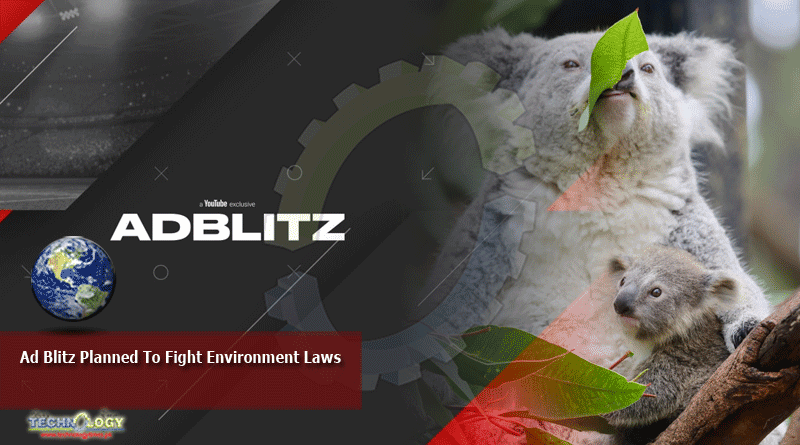Conservation Groups Will Launch An Advertising Campaign Aimed At Building Support For Stronger National Environment Laws

In response to what they say is a “breach of faith” by the Morrison government.
Groups including Birdlife Australia, WWF and the Australian Conservation Foundation will begin a “Before it’s gone” campaign on Sunday with radio, print, TV and billboard advertisements featuring high-profile species including the koala and greater glider.
It follows the Morrison government this week introducing legislation to hand greater powers to the states that included no measures to ensure maintained or strengthened protection for threatened species or ecosystems.
The environment minister, Sussan Ley, told Guardian Australia commentary in response to the bill had been misleading.
She said there would be future announcements from the government about its response to the independent review of Australia’s national environmental laws, chaired by the former competition watchdog head Graeme Samuel.
“I completely reject misleading commentary that suggests the technical enabling amendments introduced [Thursday] are the government’s entire response to the Samuel review,” she said.
“I have made it very clear this is the first step in a process, and that there will be further legislation.”
Quinton Clements, WWF Australia’s head of policy, said Australia had a once-in-a-decade opportunity to fix the country’s failing system of environmental protection.
“Taking an eraser to our most iconic native animals might seem shocking, but if this failing law isn’t fixed there’s a real risk that future generations won’t see species like koalas or greater gliders in the wild,” Clements said.
“We hope this campaign will inspire people to call on our leaders to strengthen our nature laws and ensure they are properly enforced. If we don’t take action now the loss to Australia will be irreversible.”
The interim report from the review of the Environment Laws Protection and Biodiversity Conservation Act found the country’s environment is declining at an unsustainable rate.
Samuel called for a major overhaul, the centrepiece of which should be new national environmental standards that set clear rules for environmental protection while allowing for sustainable development.
The report recommended state and territory governments take on responsibility for approval decisions under national law and the establishment of an independent regulator to enforce the law.
The government has ruled out setting up an independent agency for this purpose.
It was condemned this week for breaking its commitment to include new standards with legislation that will transfer development approval powers to the states and territories.
A bill introduced to the parliament on Thursday is an almost identical reproduction of the Abbott government’s failed 2014 one-stop-shop laws, with no reference to promised prototype standards Ley said in July would be introduced at the same time.
- Samantha Vine, BirdLife Australia’s head of conservation, called the bill a breach of faith.
- “The integrity of the [review] process has just been thrown out the window with this,” she said.
“Actually introducing the exact same bill as 2014 – does that mean the months of consultation, the 124-page review, count for nothing? It’s breaking faith with the community, these 30,000 people who made the time to make a contribution.”
Megan Evans, an environmental policy researcher at University of New South Wales in Canberra, sits on a consultative committee that has been meeting with Samuel to develop the standards.
“I’m disappointed that the bill hasn’t made explicit reference to the national environmental standards as was promised because that was the centrepiece,” she said.
“Myself and other members of the consultative group have been working with Samuel and the secretariat in good faith to help develop these standards since the group was convened in mid-July.
“It seems strange that a clause referring to standards wasn’t included in the bill, yet the time was taken to remove the water trigger clause.”
Martine Maron, from the Wentworth Group of Concerned Scientists and also a member of the committee, said the bill contained nothing that responded to the key concern the review highlighted – that Australia’s laws had failed to protect the environment.
“The most important thing is that we see responses that genuinely lift the standard of environmental management in this country so that we have some chance of turning the tide of extinctions and decline that we’re currently seeing,” she said.
“Clear national standards would be a hugely important starting point for that reform as proposed in the review.”
Ley has said the standards will be contained within the bilateral agreements with state and territory governments, something legal experts have warned would be inadequate.
“I would encourage those making what are frankly silly suggestions to focus on their important role in Professor Samuel’s consultative group, which has been tasked with developing a strong set of national environmental standards,” she told Guardian Australia.
The bill is set to be debated in the lower house on Tuesday.
Labor and the Greens have criticised the process as rushed, with the Greens calling for debate in the Senate to be delayed until Samuel hands down his final report.
Labor has called on the government to make interim standards available before any amendments are debated and for the government to establish an independent environmental regulator.
The independent MP Zali Steggal said “on first read, this is very disappointing legislation put forward by the government that could weaken biodiversity protection”.
The Australian Conservation Foundation has been urging its supporters to email senators as the “last line of defence against any rushed changes to our already weak environment laws”.
Basha Stasak, the ACF’s nature program manager, said Australia was in the midst of an extinction crisis.
“The Morrison government’s decision to rush through legislation that will cut back environmental protection shows the government isn’t listening to what nature needs and the community is calling for,” she said.
“We are running this campaign to show what’s at stake if the government doesn’t seize this moment and introduce strong laws to protect nature and an independent regulator to enforce them.”
This news was originally published at theguardian.com
